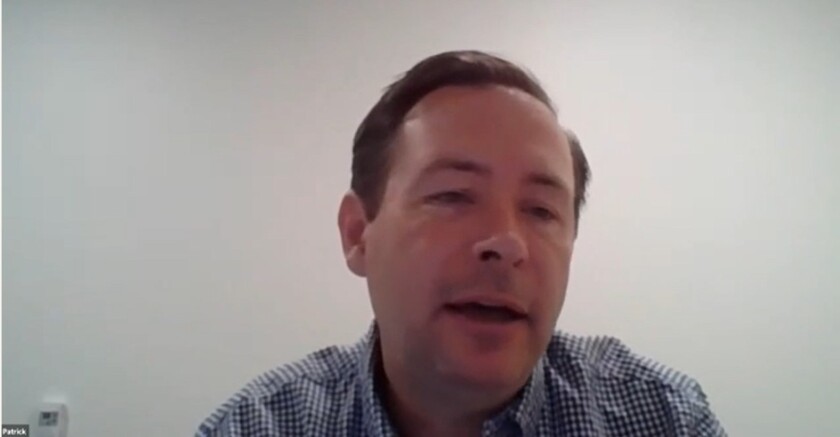The need to work toward systemic change to prevent more people from experiencing crisis situations with their mental health in rural north-central Minnesota was the primary takeaway from a recent report.
Community partners, mental health care providers and consumers across five area counties took part in a wide-ranging mental health needs assessment as part of the “Greater State of Mind” project this spring and summer, an effort of the Region V+ Mental Health Initiative. The assessment sought to gather hyperlocal data on what’s working and what isn’t in connecting those in need with the mental health services they require, while also providing resources to develop solutions.
“It’s really just one step in a larger process,” said Patrick Kinner, a program evaluation consultant with the Center for Behavioral Health Integration, during a virtual presentation of results last month. “Now this becomes the community’s work and you and others can get together to continue these conversations in work you are already doing or in new places to address some of the needs, and to work through and apply some of the resources and suggestions that we have in helping to build out ways to further improve community services.”

ADVERTISEMENT
Using survey data, focus groups and individual interviews, Kinner and his colleague Cathleen Scully, a program manager with the center, identified common themes across the answers of those ranging from mental health providers with decades of direct experience to those receiving psychiatric care themselves. The largest group surveyed consisted of community partners regularly in contact with the mental health system, including those working in county social services agencies, criminal justice, child welfare, schools, housing and other areas.
Kinner said it didn’t take long to reveal how strained the mental health care system is in the region with a high demand for services heightened further by the COVID-19 pandemic, a burned out and stretched thin workforce and long-standing challenges, such as transportation availability, continuing to present barriers.
According to Scully, a recent nationwide survey found a deficit of nearly 6,400 mental health practitioners across the country, and these shortages are felt even more acutely in rural communities. And among those surveyed locally, three-quarters said they feel burned out all or part of the time.
“We’re hoping that that helps to underline why this project and work like this is so important, because if we collectively are able to identify strategies for taking some of the burden off the mental health system, then hopefully this is something that will benefit everybody,” Kinner said.
A quarter of those who rely on the mental health care system across Aitkin, Cass, Crow Wing, Morrison, Todd and Wadena counties along with the Leech Lake and Mille Lacs bands reported having trouble accessing case management services when they felt they needed it, while 18% noted the difficulty in acquiring psychiatric medication management or crisis services.
"We’re hoping that that helps to underline why this project and work like this is so important, because if we collectively are able to identify strategies for taking some of the burden off the mental health system, then hopefully this is something that will benefit everybody."
— Patrick Kinner
“The bigger question is, at a time when demand for services is so high, and at a time when we know that the mental health provider workforce is very taxed, are these numbers reasonable numbers? Would you want to see a more prompt response, or would you want to see more people flowing into these services more quickly or with fewer barriers?” Kinner said to the group.
ADVERTISEMENT
Difficulty gaining access to transportation not only increases the likelihood people will not receive the care they need, it also amps up the chances those same people may require more resource-intensive interventions or may come into contact with law enforcement, Kinner explained. According to the survey data, nearly half of consumers, or 48%, travel more than 10 miles to access mental health services, with 7% traveling 50 miles or more.
“We know that if you’re going to get services in Region V+, you’re going to be in the car for a notable period of time,” Kinner said. “ … Obviously, that can interfere with people’s ability to stay with services over time.”
Breaking down barriers to transportation, enhancing the mental health workforce, addressing stigma, promoting culturally responsive care, developing new funding opportunities and rethinking how law enforcement responds to mental health crisis situations were among the collaboration opportunities the assessment identified. Taking these steps as a community, Kinner said, can move the system as a whole in a more positive direction.
“Crisis services are always going to be needed, but when the ability to meet client needs is outstripped because the demand for services is so high and the staffing is relatively limited, that’s going to show up in crisis services. You’re going to have more and more people that have difficulty getting less intensive levels of care when they need it, which prevents them from going into crisis,” Kinner explained.
"Crisis services are always going to be needed, but when the ability to meet client needs is outstripped because the demand for services is so high and the staffing is relatively limited, that’s going to show up in crisis services."
— Patrick Kinner
“So crisis becomes kind of the focal point for services. As more people flow into crisis, which means they then flow into other parts of the system — whether it’s the law enforcement world or whether it’s inpatient, residential, different kinds of psychiatric care — so when you have a greater spotlight on crisis services, it can suggest that there are more problems downstream for the less intensive services and that creates more problems upstream.”
Danielle Wadsworth, program coordinator for the Region V+ Mental Health Initiative, encouraged those listening in on the session to stay involved and advocate for the aspects of the regional mental health system they’d like to see strengthened.
ADVERTISEMENT
“I can feel it. We’re ready to take that next step and move forward with this data and try to solve some of these gaps in the mental health system,” Wadsworth said. “ … The work that got us here, it’s just starting. We need your voice to be able to come up with a successful solution to bridge those gaps, and without it, we’re not going to be able to continue moving forward.”
To view the assessment results and recommendations, learn more about the project or to get involved, visit region5mentalhealth.com/home/greater-state-of-mind .









